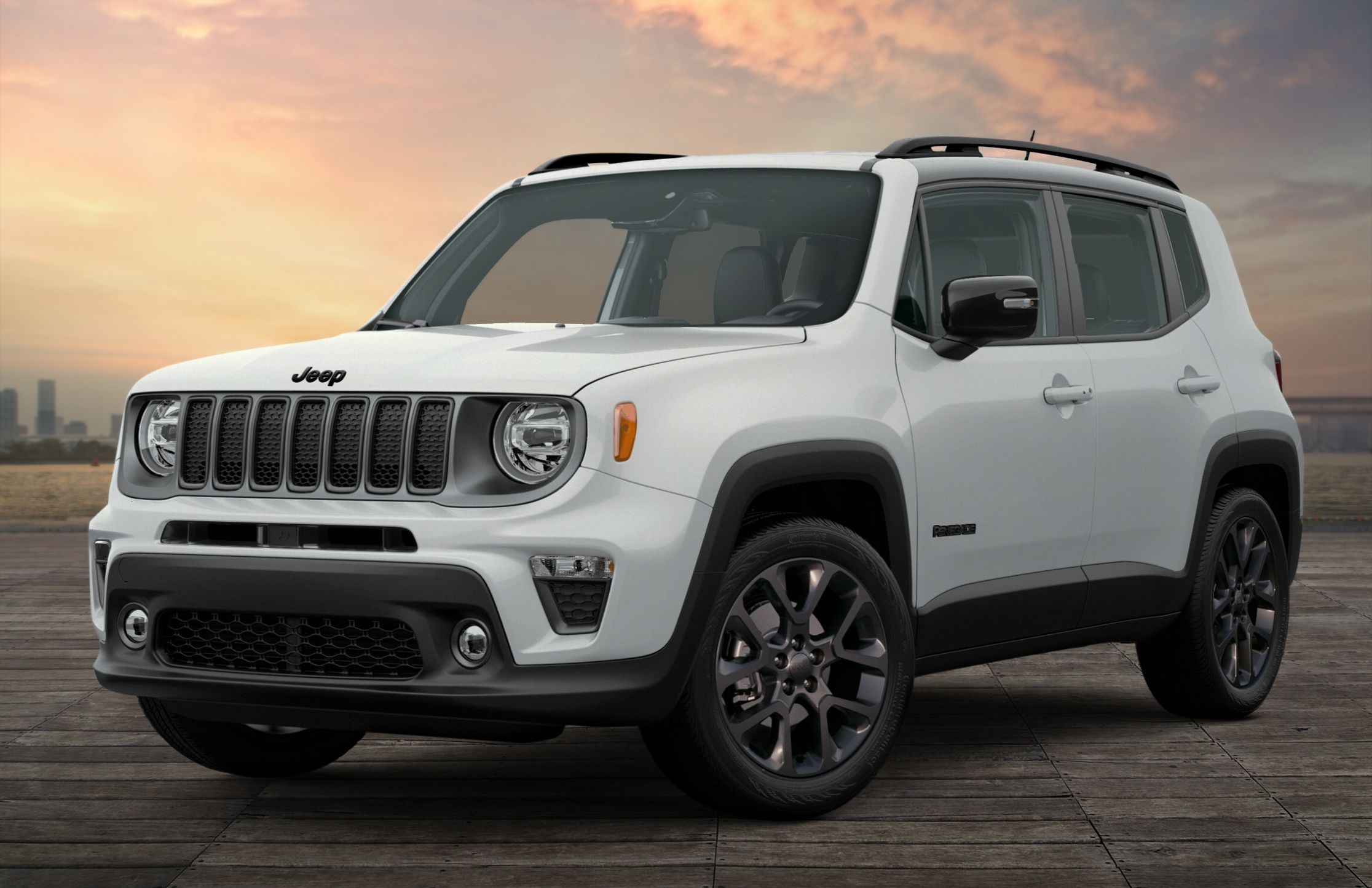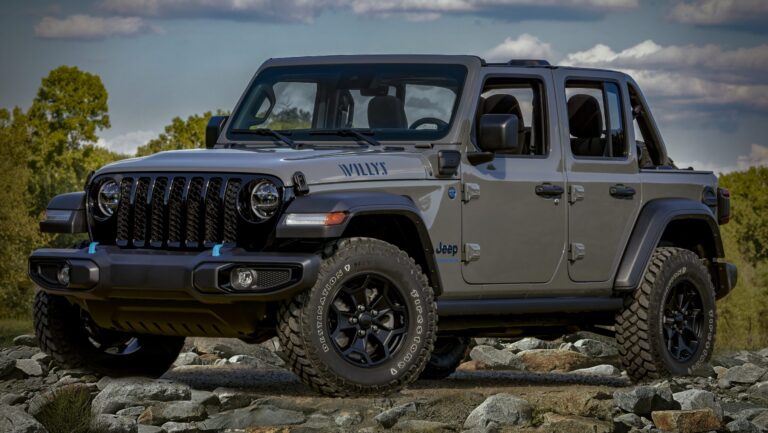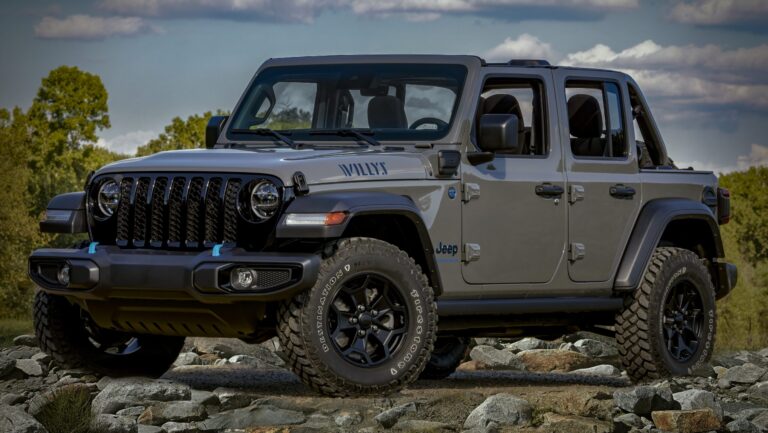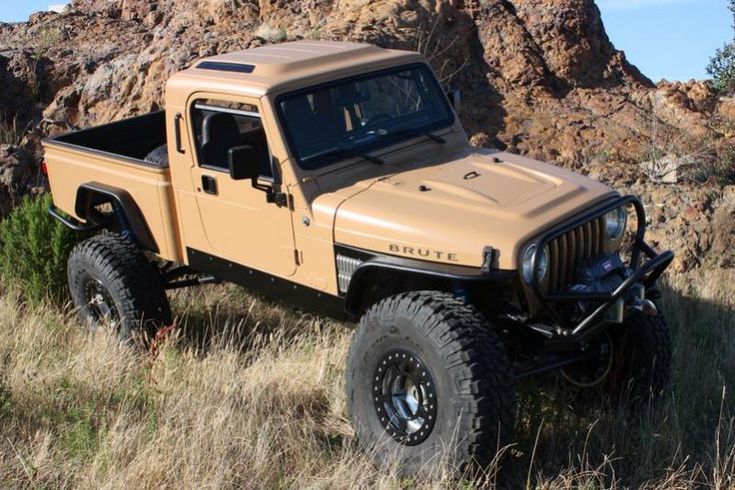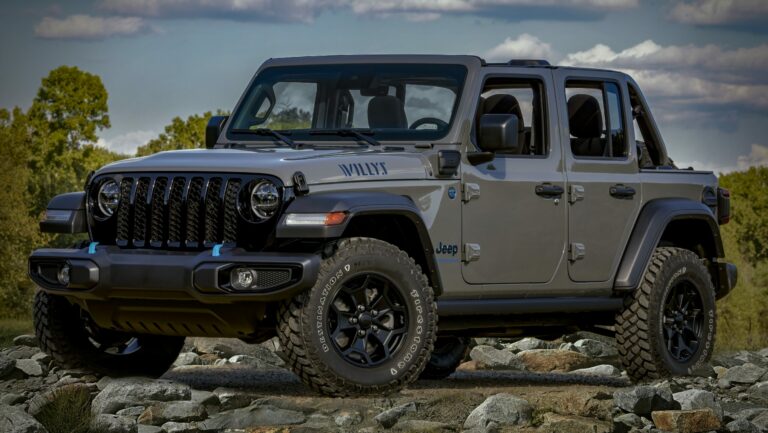Jeep Grand Cherokee Trackhawk For Sale: Your Ultimate Buyer’s Guide
Jeep Grand Cherokee Trackhawk For Sale: Your Ultimate Buyer’s Guide jeeps.truckstrend.com
Introduction: Unleashing the Beast on Four Wheels
In the realm of high-performance vehicles, few command attention quite like the Jeep Grand Cherokee Trackhawk. It’s not merely an SUV; it’s a testament to engineering audacity, a vehicle that seamlessly blends the practicality of a family hauler with the heart-stopping power of a supercar. At its core lies the supercharged 6.2-liter HEMI V8 engine, famously borrowed from Dodge’s Hellcat models, unleashing an astounding 707 horsepower. This potent combination catapulted the Trackhawk into a league of its own, solidifying its reputation as one of the fastest and most thrilling SUVs ever produced.
Jeep Grand Cherokee Trackhawk For Sale: Your Ultimate Buyer’s Guide
For enthusiasts and families alike, the prospect of a Jeep Grand Cherokee Trackhawk for sale represents an opportunity to own a truly unique piece of automotive history. It’s a vehicle that defies conventional categorization, offering blistering acceleration, sophisticated all-wheel-drive dynamics, and a surprisingly luxurious interior. Whether you’re seeking unparalleled performance, a distinctive daily driver, or a collector’s item that holds its value, understanding the nuances of the Trackhawk market is crucial. This comprehensive guide will navigate you through everything you need to know about finding, evaluating, and ultimately acquiring your very own Trackhawk.
Understanding the Beast: What Makes the Trackhawk Special?
Before diving into the buying process, it’s essential to appreciate what sets the Trackhawk apart from its Grand Cherokee siblings and other performance SUVs. This isn’t just an engine swap; it’s a holistic engineering marvel designed to harness extreme power safely and effectively.
The Heart of the Beast: Supercharged Performance
The undisputed star of the Trackhawk is its supercharged 6.2L HEMI Hellcat V8 engine. This powerhouse generates 707 horsepower and 645 lb-ft of torque, enabling the massive SUV to sprint from 0-60 mph in a breathtaking 3.5 seconds and achieve a top speed of 180 mph. Its quarter-mile time is an equally impressive 11.6 seconds. The distinctive whine of the supercharger is an auditory signature, announcing its arrival long before it’s seen.
Engineered for Domination: Drivetrain and Dynamics
To manage such immense power, Jeep equipped the Trackhawk with a robust Quadra-Trac Active On-Demand 4×4 system, specifically calibrated for performance. This system, combined with an eight-speed automatic transmission, ensures power is delivered efficiently to all four wheels. Stopping power is equally critical, and the Trackhawk features massive Brembo high-performance brakes (15.75-inch two-piece rotors up front with six-piston calipers) that are visible through its distinctive 20-inch wheels. An adaptive damping suspension system, developed by Bilstein, allows drivers to select various modes (Street, Sport, Track, Snow, Tow, Custom) to tailor the ride and handling characteristics to their preference.
Aggressive Aesthetics and Refined Comfort

Visually, the Trackhawk stands out with an aggressive front fascia featuring functional air intakes, a unique hood with dual heat extractors, and quad exhaust tips. Inside, it balances performance cues with luxury. Performance-oriented Nappa leather and suede seats hold occupants firmly during spirited driving, while an 8.4-inch Uconnect infotainment system with Apple CarPlay, Android Auto, and performance pages provides modern connectivity and data. High-quality materials and meticulous craftsmanship define the cabin, reminding occupants that this is still a Grand Cherokee, albeit one with a very wild side.
Model Years and Availability
The Jeep Grand Cherokee Trackhawk was produced for a relatively short run, primarily from the 2018 to 2021 model years. This limited production contributes to its desirability and, consequently, its strong resale value. Finding a Trackhawk for sale often means navigating the used car market, where condition, mileage, and specific options play a significant role in pricing.
The Allure of the Used Trackhawk Market
For many, purchasing a used Jeep Grand Cherokee Trackhawk is the most viable and often the most financially sensible option. While you miss out on the factory warranty of a new car (though some might have remaining balance), the significant depreciation that affects new vehicles has already been absorbed by the first owner.
![]()
Why Buy Used?
- Value Proposition: Used Trackhawks offer substantial savings over their original MSRP, allowing you to acquire a high-performance SUV at a more accessible price point.
- Availability: With new production ceased, the used market is the only place to find one.
- Proven Track Record: By opting for a used model, you can review service histories and owner feedback, gaining insight into the vehicle’s past life.
Factors Influencing Price and Condition
When searching for a Jeep Grand Cherokee Trackhawk for sale, several key factors will dictate its price and overall appeal:
- Model Year: Newer models (2020-2021) will generally command higher prices than earlier 2018-2019 models due to lower mileage and potentially newer tech features (though the core mechanicals remained largely unchanged).
- Mileage: Lower mileage vehicles are more desirable and pricier. A Trackhawk with less than 30,000 miles will be significantly more expensive than one with 60,000+ miles.
- Condition: This is paramount. Look for vehicles with clean titles, no accident history, and minimal wear and tear both inside and out. Paint condition, interior cleanliness, and tire wear are quick indicators.
- Service History: A complete and verifiable service history, especially for a performance vehicle, adds immense value and peace of mind. Regular oil changes, brake services, and supercharger maintenance are critical.
- Optional Features: Premium options like the panoramic sunroof, upgraded sound system (Harman Kardon), carbon fiber interior trim, or specific wheel packages can influence the price.
- Location: Prices can vary based on regional demand and supply.
Navigating the Purchase: A Buyer’s Guide for the Trackhawk
Acquiring a high-performance vehicle like the Trackhawk requires a meticulous approach. Rushing the process can lead to costly mistakes.
1. Research and Budgeting
- Understand Running Costs: Beyond the purchase price, budget for high-octane fuel, premium insurance (which can be substantial for a 707 hp SUV), expensive performance tires, and potentially higher maintenance costs for specialized components.
- Market Research: Use online platforms (Autotrader, Cars.com, eBay Motors, specialty forums, local dealership websites) to gauge current market prices for Trackhawks with similar mileage and condition. This will empower your negotiations.
2. Finding Your Trackhawk
- Online Marketplaces: These offer the widest selection. Filter by year, mileage, and price.
- Specialty Dealerships: Performance-oriented or luxury used car dealerships often have Trackhawks in stock and may offer certified pre-owned options.
- Private Sellers: Can sometimes offer better deals but require more diligence on your part regarding inspections and paperwork.
- Enthusiast Forums: Trackhawk-specific forums or Facebook groups can be great places to find well-maintained vehicles from owners who truly understand their cars.
3. The All-Important Pre-Purchase Inspection (PPI)
This cannot be stressed enough. For a vehicle of the Trackhawk’s complexity and power, a professional Pre-Purchase Inspection by a qualified mechanic (ideally one familiar with Hellcat engines or high-performance Mopar vehicles) is non-negotiable.
- Engine & Transmission: Check for leaks, unusual noises, proper fluid levels and condition. Look for signs of modifications that might void warranties or stress components.
- Brakes: Inspect rotors for warping or excessive wear, and calipers for leaks. Brembo pads and rotors are expensive to replace.
- Suspension: Check for leaks from the adaptive dampers, and inspect bushings and control arms for wear.
- Drivetrain: Listen for unusual noises from the differential or transfer case.
- Electronics: Test all infotainment features, climate control, driver-assist systems, and power accessories.
- Tires: Inspect for even wear, indicating proper alignment. Trackhawks chew through tires quickly, so factor new tires into your budget if needed.
4. Vehicle History Report
Obtain a CarFax or AutoCheck report. This will reveal:
- Accident History: Any reported collisions, no matter how minor, can impact value and potential future issues.
- Service Records: Verify consistent maintenance.
- Ownership History: How many owners the vehicle has had.
- Lien Status: Ensure there are no outstanding loans on the title.
5. The Test Drive
A thorough test drive is crucial.
- Cold Start: Listen for any unusual noises immediately after starting.
- Acceleration: Test acceleration in different drive modes (Sport, Track) to ensure full power delivery and smooth shifts.
- Braking: Check for strong, linear braking without pulsation or pulling.
- Steering & Handling: Ensure the steering is precise and responsive, and there are no strange noises or vibrations from the suspension over bumps.
- Electronics Check: Confirm all gauges, lights, and infotainment functions properly.
6. Negotiation
Armed with your research and PPI report, negotiate confidently. Be prepared to walk away if the deal doesn’t feel right or if significant issues are uncovered.
Key Considerations Before Ownership
Owning a Trackhawk is an incredible experience, but it comes with responsibilities and costs unique to high-performance vehicles.
- Maintenance Costs: Be prepared for higher-than-average maintenance expenses. Performance brake components, specialized fluids, and robust driveline components are costly. Supercharger oil changes and spark plug replacements are also more involved.
- Fuel Economy: It’s notoriously thirsty. Expect single-digit MPG in aggressive driving and mid-teens on the highway at best. Premium (91+ octane) fuel is mandatory.
- Insurance Premiums: Due to its power, value, and theft desirability, insurance rates can be significantly higher than a standard SUV. Obtain quotes before purchasing.
- Tire Wear: The immense power and weight will lead to accelerated tire wear, especially if driven enthusiastically. Performance tires are also more expensive.
- Potential for Abuse: Some Trackhawks may have been driven hard, potentially leading to accelerated wear or hidden issues. This reinforces the importance of a PPI.
- Modifications: Be cautious of heavily modified Trackhawks. Unless professionally done and well-documented, modifications can compromise reliability, void warranties, and make future repairs difficult.
Maximizing Your Trackhawk Experience
Once you’ve acquired your Trackhawk, a few tips can help ensure you enjoy it to the fullest while preserving its longevity:
- Adhere to Service Schedules: Follow Jeep’s recommended maintenance schedule religiously, especially for fluid changes and critical component inspections.
- Quality Fuel: Always use premium octane fuel as specified by the manufacturer.
- Tire Management: Monitor tire pressure regularly and be mindful of aggressive driving that can prematurely wear them out.
- Understand Drive Modes: Experiment with the different drive modes to understand how they transform the vehicle’s character, from comfortable daily driver to track monster.
- Join the Community: Connect with other Trackhawk owners through online forums or local car clubs. They can offer invaluable advice, share experiences, and even help with parts or service recommendations.
Jeep Grand Cherokee Trackhawk For Sale: Estimated Price Ranges
Please note that these are estimated price ranges for the used market and can vary significantly based on exact mileage, specific options, vehicle condition, service history, and regional market demand. Always conduct your own research for the most current pricing.
| Model Year | Mileage Range (Approx.) | Condition Rating | Estimated Price Range (USD) | Key Factors Influencing Price |
|---|---|---|---|---|
| 2018 | 40,000 – 70,000+ | Good to Fair | $48,000 – $58,000 | Higher mileage, early production |
| 2018 | 25,000 – 40,000 | Very Good | $58,000 – $65,000 | Average mileage, well-maintained |
| 2019 | 30,000 – 60,000+ | Good to Fair | $55,000 – $65,000 | Depreciation, average mileage |
| 2019 | 15,000 – 30,000 | Very Good | $65,000 – $72,000 | Lower mileage, solid condition |
| 2020 | 20,000 – 50,000 | Very Good | $68,000 – $78,000 | Newer model, potentially more tech |
| 2020 | Under 20,000 | Excellent | $78,000 – $85,000+ | Low mileage, pristine condition |
| 2021 | 15,000 – 40,000 | Very Good | $75,000 – $88,000 | Final production year, desirable |
| 2021 | Under 15,000 | Excellent/Like New | $88,000 – $95,000+ | Lowest mileage, often enthusiast-owned |
Disclaimer: These prices are illustrative. A heavily optioned, extremely low-mileage example in pristine condition might exceed the higher end of these ranges, while a higher-mileage or cosmetically flawed vehicle might fall below. Always verify prices with current market data.
Frequently Asked Questions (FAQ) about the Jeep Grand Cherokee Trackhawk
Q1: Is the Jeep Grand Cherokee Trackhawk reliable?
A1: Generally, the Trackhawk is considered reliable for a high-performance vehicle. The Hellcat engine platform has proven robust. However, like any vehicle pushed to its limits, it requires diligent maintenance. Components like brakes, tires, and some drivetrain parts will wear faster and be more expensive to replace than on a standard SUV.
Q2: How much does a Trackhawk cost to maintain annually?
A2: Annual maintenance costs can range from $1,500 to $3,000+, depending on mileage, driving style, and whether major service items like brake pad/rotor replacement or supercharger service are due. Factor in premium fuel, high-performance tires, and higher insurance premiums.
Q3: What’s the fuel economy like for a Trackhawk?
A3: Expect poor fuel economy. The EPA rates it at around 11 MPG city / 17 MPG highway. Real-world driving, especially with spirited acceleration, will often yield single-digit figures.
Q4: Can the Trackhawk be used as a daily driver?
A4: Absolutely. Despite its immense power, the Trackhawk retains the Grand Cherokee’s practicality. It offers comfortable seating for five, ample cargo space, and the Quadra-Trac system provides excellent all-weather capability. Its adaptive suspension also allows for a surprisingly compliant ride in "Street" mode.
Q5: Are there any common problems or issues to look out for?
A5: While not widespread, some owners report issues with infotainment glitches (common to Uconnect systems), premature tire wear (expected given the power), and sometimes more frequent brake servicing. Always look for a complete service history to ensure proper maintenance has been performed. Signs of abuse (e.g., drag racing, burnouts) can lead to accelerated wear on the drivetrain components.
Q6: What’s the difference between a Trackhawk and a Grand Cherokee SRT?
A6: The primary difference is the engine. The Trackhawk uses the supercharged 6.2L HEMI Hellcat V8 (707 hp), while the SRT uses a naturally aspirated 6.4L HEMI V8 (475 hp). The Trackhawk also features stronger components throughout its drivetrain, larger Brembo brakes, and a more aggressive visual package to handle the increased power.
Q7: Which model year is best to buy?
A7: There were no significant mechanical changes throughout its production run (2018-2021). Newer models (2020-2021) might have slightly updated infotainment features or minor trim changes, but the core performance remains the same. The best model year is often the one you find in the best condition, with the lowest mileage, and a complete service history, within your budget.
Conclusion: The Thrill of Trackhawk Ownership
The Jeep Grand Cherokee Trackhawk stands as a monument to American automotive ingenuity, a vehicle that effortlessly shatters preconceived notions of what an SUV can be. It’s a family hauler capable of outrunning many sports cars, a luxurious cruiser that can dominate a drag strip, and an iconic machine that blends practicality with pure, unadulterated performance.
Embarking on the journey to find a Jeep Grand Cherokee Trackhawk for sale requires diligence, research, and a clear understanding of its unique characteristics. By following a comprehensive buying guide, prioritizing a thorough pre-purchase inspection, and budgeting for its specific ownership costs, you can confidently acquire a vehicle that promises an unparalleled driving experience. Owning a Trackhawk isn’t just about getting from A to B; it’s about the exhilarating roar of the supercharger, the neck-snapping acceleration, and the undeniable presence of a true automotive legend. Prepare for a ride like no other.

